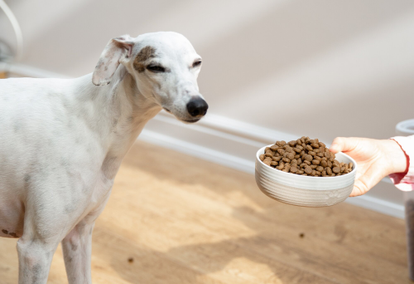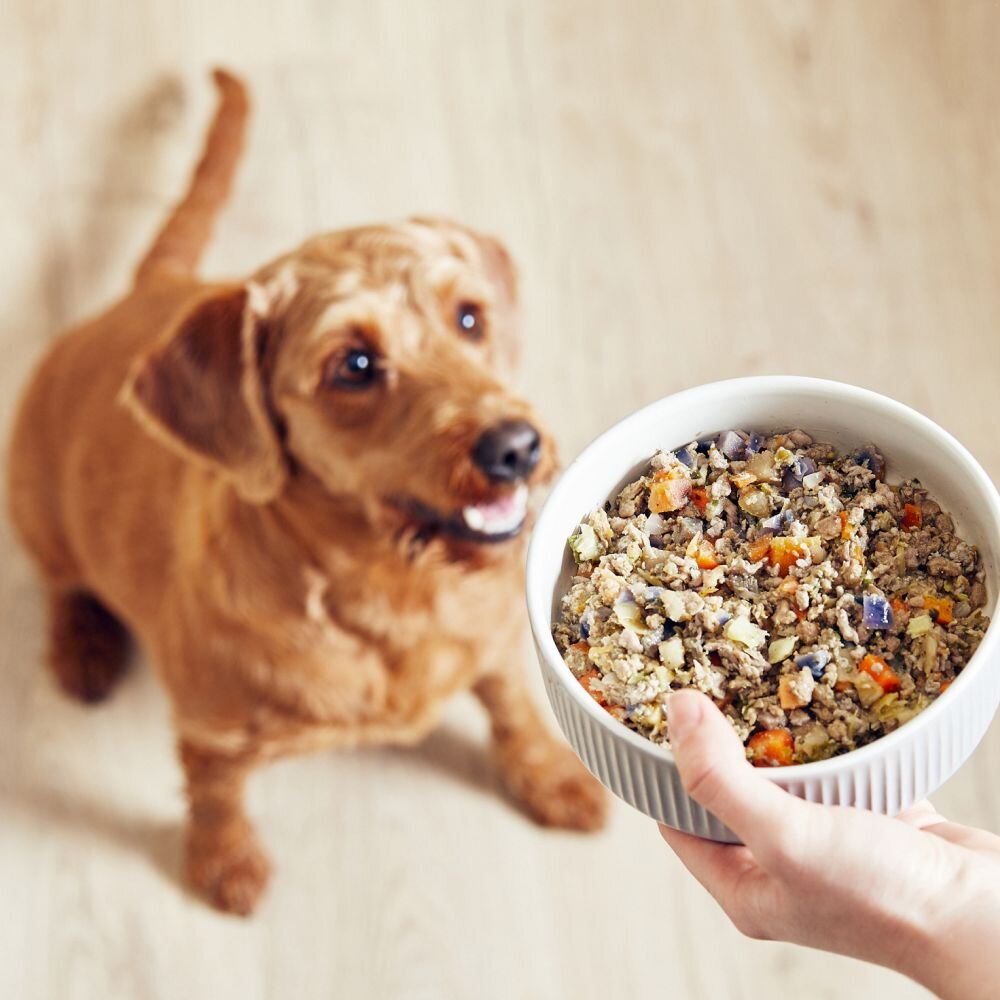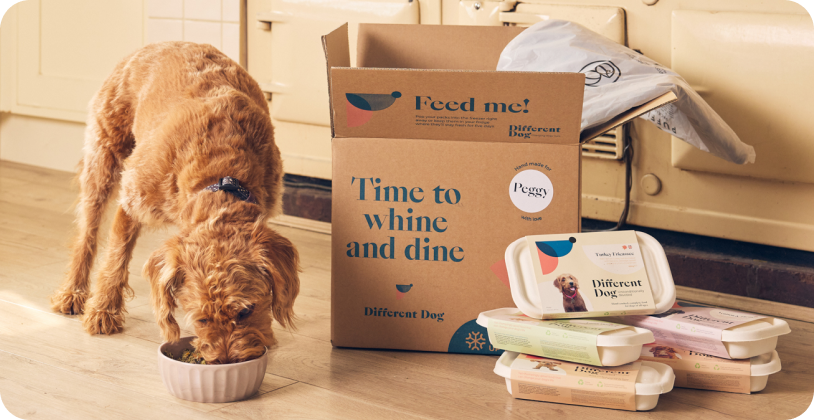What foods are toxic to dogs?
Our Vet Alison talks us through some of the human foods that are toxic to dogs in the blog this week.
Tempting as it is to treat your dog to a little of what you’re eating, some human foods are not tolerated by dogs and some can be toxic with devastating consequences. As well as being offered harmful foodstuffs by owners unaware of the danger, dogs may accidentally gain access to them given their inquisitive nature and the widespread distribution of the foodstuffs in our homes.
Here we look at a list of foods, that even when ingested in small amounts, can be poisonous to our four legged friends.
The main foods that are toxic to dogs
CHOCOLATE
Chocolate contains the stimulants theobromine and caffeine and it’s these component of chocolate that can be toxic to dogs. The amount of theobromine varies depending on the type of chocolate - it is much more concentrated in unsweetened cooking chocolate, cocoa powder and dark chocolate compared to milk chocolate with white chocolate being a much less significant source.
Toxic effects of theobromine in dogs occur at approximately 20mg/Kg with severe signs at 40-50mg/ Kg and seizures at 60mg/Kg. Therefore, treatment is suggested when dogs have eaten what might seem like small amounts of chocolate, especially when the ingestion is of unsweetened baking chocolate or coca powder.
Online ‘Chocolate Toxicity Calculators for Dogs ‘ can give a useful indication of toxicity but don’t rely on these -always contact your vet as soon as possible after the ingestion for advice.
Signs of theobromine poisoning tend to develop 4-24 hours after ingestion.
Theobromine mostly affects the gut, heart, central nervous system and kidneys. Therefore, symptoms may include vomiting, diarrhoea, increased thirst, restlessness, hyperactivity, irregular heartbeat, muscle tremors and seizures.
CAFFEINE
Dogs are more sensitive to the effects of caffeine than humans. A small amount will not be harmful but a large ingestion of this stimulant will result in similar symptoms to those displayed with chocolate poisoning such as restlessness, vomiting, increased thirst and increased heart rate.
Caffeine absorption is rapid in dogs so that initial clinical signs tend to be observed within 2-4 hours of ingestion.
MACADAMIA NUTS
Dogs can suffer with tremors and weakness, vomiting, depressed demeanour and fever after ingestion of macadamia nuts.
Signs of macadamia nut poisoning develop within 12 hours of ingestion and symptoms tend to last for 12-48 hours.
XYLITOL
This is an artificial sweetener that is found in many human foods including baked goods, sugar-free sweets or gum and some varieties of peanut butter. In dogs it causes a surge in insulin release that can lead to potentially fatal low blood sugar levels.
Even small quantities of Xylitol (0.03g/Kg) have been reported to cause low blood sugar in dogs. Often signs of low blood sugar develop rapidly, within 30 minutes, although they may be delayed for 12-18 hours if the xylitol absorption is slowed -this may be the case in some gum products.
Symptoms can include lethargy, vomiting, loss of coordination and seizures. Some dogs that ingested larger doses of Xylitol (0.5g/Kg) developed severe, acute liver disease and blood clotting disorders - the mechanism of this failure is not understood but sadly it can be fatal.
BLUE CHEESE
As with all dairy products, dogs find the digestion of cheese difficult, due to a lack of Lactase. In addition, some of the blue cheeses contain a substance called roquefortine C.
Dogs are sensitive to roquefortine C ingestion and if eaten in significant amounts can cause vomiting, diarrhoea and possibly a fever, tremors and seizures.
MOULDY FOOD
Mouldy food contains toxins that can be poisonous to dogs, so always keep an eye on dogs that scavenge on walks or raid the bin. Mycotoxin toxicosis usually presents as tremors and seizures and in severe cases can be fatal if untreated.
ALCOHOL
Alcoholic beverages and foods containing alcohol can cause vomiting, diarrhoea, disorientation, restlessness, central nervous system depression and difficulties breathing.
ONIONS and GARLIC
All members of the onion family -including shallots, onions, scallions, leeks, chives and garlic are toxic to dogs. The onions in all forms, whether they’re raw, cooked, dehydrated or powdered are toxic to dogs.
Some breeds appear to be more sensitive to poisonings by the onion family, such as the Akita. A compound in onions can cause stomach and gut irritation in dogs and potentially lead to red blood cell damage with subsequent anaemia.
Common clinical signs include vomiting, diarrhoea, abdominal pain and loss of appetite. In addition, some dogs will develop anaemia and have pale gums, dark urine and increased respiratory and heart rates.
Symptoms may be observed a day after ingestion or may not be apparent for a few days after ingestion, depending on the dose ingested. Reported toxic doses of garlic and onion in dogs are from 5g per Kg bodyweight.
GRAPES and RAISINS
The toxic substance in grapes, raisins, sultanas and currants is unknown but can cause kidney failure in sensitive dogs. The fruits may be ingested raw or cooked as ingredients in fruit cakes, mince pies and other baked goods.
The toxic dose seems to vary greatly between individuals and therefore, there is no safe dose for dogs for the ingestion of grapes and the dried products.
Vomiting, diarrhoea, abdominal pain and lethargy can occur within 12-24 hours of ingestion, dogs may become dehydrated and signs of kidney failure can follow soon after. The kidney failure can be fatal.
What to do if your dog ingests a toxic food:
In line with any potential poisoning, once you realise that your dog has eaten something they shouldn’t, contact your vet immediately.
The time taken to administer appropriate veterinary treatment can play a significant role in determining the outcome with poisonings. If the ingestion is within 90-120 minutes, your vet may induce vomiting to reduce the amount of toxic ingredient in their system.
Even if this window has been missed, it is worth contacting your vet with as much detail as you can provide, in order to get prompt treatment underway to decontaminate your dog and treat already symptomatic patients appropriately.


Join The Pack
Receive exclusive offers, tips and tricks from our vet.
